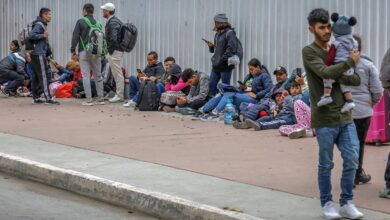“Strange World” Seeks its Second Chance at Disney +
This December 23, the Family Audience of Disney + will be Able to Enjoy “Strange World”, a Film that Comes from Movie Theaters to Streaming.

Photo: Disney Studios
LatinAmerican Post | Santiago Gómez Hernández
Listen to this article
Leer en español: “Un mundo extraño” busca en Disney + su segunda oportunidad
On November 23, “Strange World” premiered in the main movie theaters. The film is Disney's bet for Christmas 2022 and is now ready to be included in the Disney + catalog. For the moment, the film has not managed to maintain a completely positive balance between critics and the box office.
What is the film about?
“Strange World” follows the story of the Clades (Jeager, Ethan and Searcher), an adventurous family who put their differences to the fore to save their community from an energy crisis. To do this, they are guided by Callisto Mal and go to a territory where there are a series of surreal creatures. The purpose of the trip is to prevent the Pando – its vital plant – from losing its source of energy.
Within the implicit problems that the film shows us, the ecological problem on which it reflects is obvious. However, in the conversation that arises, a dysfunctional family with the egos of insecure men is also seen, who throughout the trip get to know themselves to their fullest capacity.
In addition, the film poses in Ethan the first openly gay Disney character after his relationship with Diazo. The LGBTIQ+ theme of the film is presented from a perspective in which Ethan does not intend to come out of the closet, but to be accepted as a natural by the other characters.
The animated film is directed by Don Hall, remembered for his Oscar for Best Animated Feature with "Raya and the Last Dragon." The director is joined by Qui Nguyen as co-director and on the script; while Roy Conli leads the production.
Read also: Review Of Guillermo Del Toro's "Pinocchio": An Adaptation As Moving As It Is Dark
Second chance movie
Disney's bets for Christmas had had an impact of great proportions in the media. “Encanto” did it last year, “Soul” in 2020 and “Frozen 2” in 2019. However, for 2022 it has not been the case with “Strange World”.
The box office of the film has been, by far, one of the great historical flops that Disney has had. After spending more than 150 million dollars, the income that the film has achieved has only returned a third of what was invested in theaters. Now, with its inclusion on Disney +, it is expected to have a second wind and achieve greater media weight in streaming.
While it could be said that "A Strange World" went unnoticed commercially, the critics are a little more benevolent than the public. The film had a division of opinions among the reviews it has received, but the average ends up being acceptable in general terms, something that is not congenial with the box office it received.
Only on Metacritic – a site that gathers reviews from specialized media – the film receives an average of 65 points out of 100. On the other hand, on another criticism platform such as Rotten Tomatoes, the film retained 74% of 100% rating, which could not be branded as failure.
The truth is that, as of December 23, "Strange World” will be able to be seen by a wider audience than the one that went to the cinemas. In contrast to the lack of publicity that the tape had in its premiere in movie theaters, it will arrive at Disney + with a better expectation campaign.




